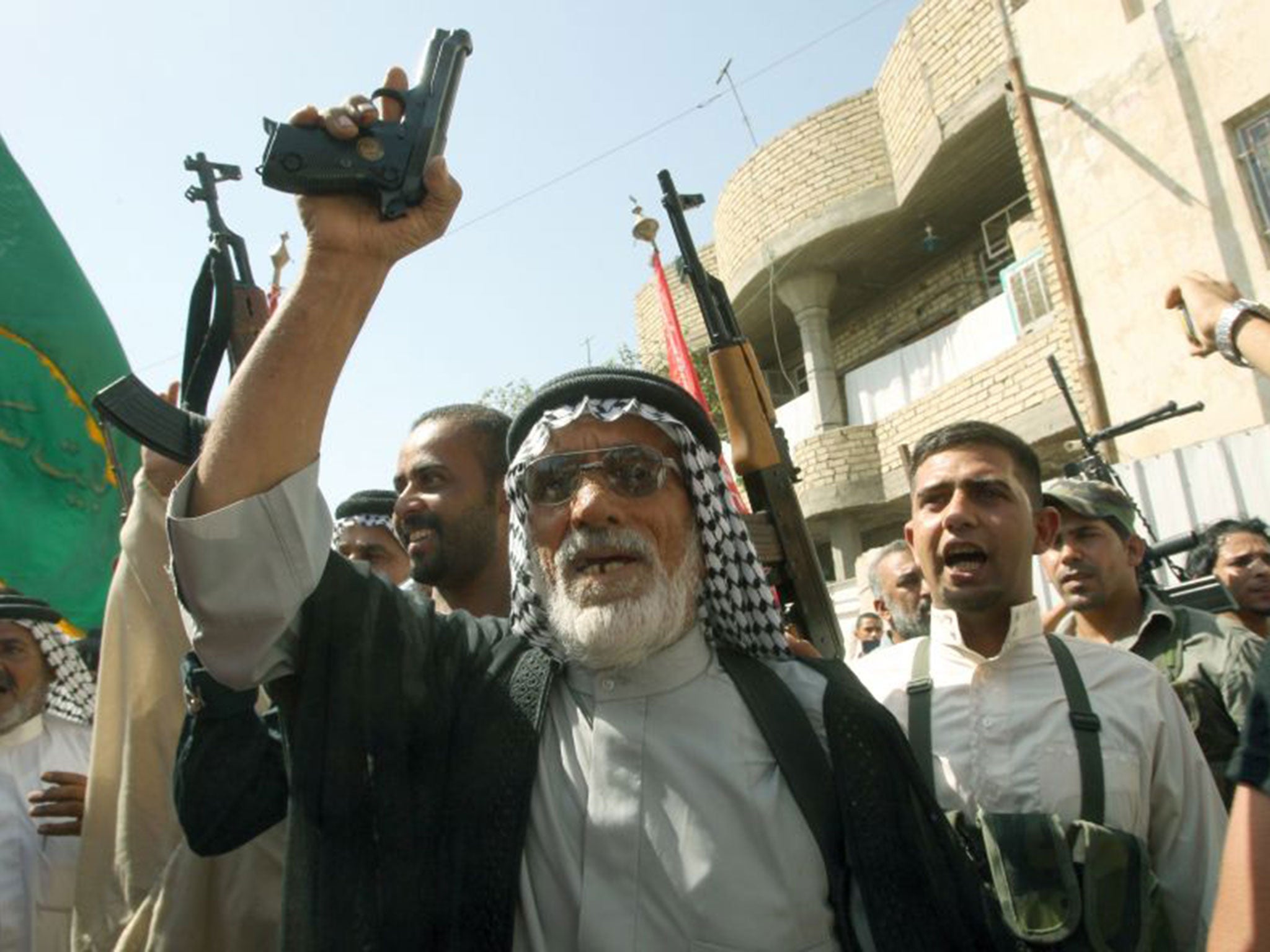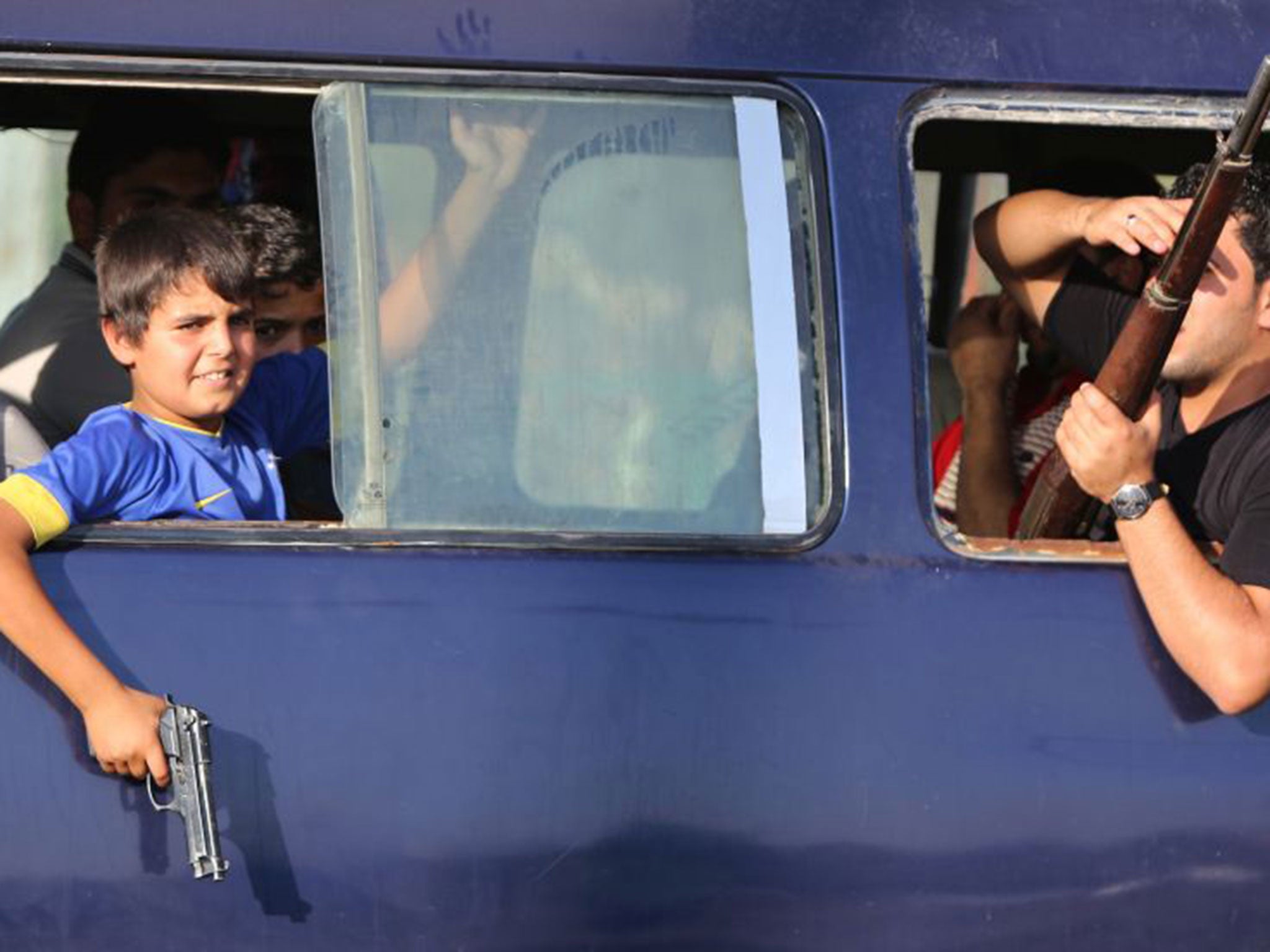Iraq crisis: Sectarian hatred stalks Baghdad as the rise of Isis widens the gulf between Shia and Sunni
The city has long been a divided society. But the murder of a Sunni doctor – two bullets to the head – demonstrates a new chapter in the killings

Your support helps us to tell the story
From reproductive rights to climate change to Big Tech, The Independent is on the ground when the story is developing. Whether it's investigating the financials of Elon Musk's pro-Trump PAC or producing our latest documentary, 'The A Word', which shines a light on the American women fighting for reproductive rights, we know how important it is to parse out the facts from the messaging.
At such a critical moment in US history, we need reporters on the ground. Your donation allows us to keep sending journalists to speak to both sides of the story.
The Independent is trusted by Americans across the entire political spectrum. And unlike many other quality news outlets, we choose not to lock Americans out of our reporting and analysis with paywalls. We believe quality journalism should be available to everyone, paid for by those who can afford it.
Your support makes all the difference.Dr Mustafa Khalil Ahmed, a young heart surgeon, was sitting with his father in their house in the mixed Sunni-Shia neighbourhood of Yarmouk in Baghdad when the doorbell rang at 11pm. There were two men outside, one of whom said he was sick. Dr Mustafa opened the door and the two men rushed in, producing pistols with silencers.
Dr Mustafa’s father, Kahalil Ahmed, sobs as he describes what happened next. He says: “The gunmen told us to sit in the living room and not to make any noise to attract the attention of the neighbours. Then they shot Mustafa twice in the head. One bullet grazed him but the other penetrated and he died two days later.” Mustafa, 38, was his only son and both his daughters live abroad, so he and his wife, who was out on the night of the murder on 30 May, now live alone in their house.
Like many murders in Baghdad, the motive was partly sectarian, as Dr Mustafa and his family were Sunni, but there was also probably professional rivalry involved. Though young, the doctor had recently been appointed general manager of Al-Khark hospital, which is normally deemed to be under the control of Shia doctors. He had told his father that colleagues had warned him against taking the job, but he did not take their advice seriously. His family think he was killed because Shia members of staff did not want a young Sunni in charge.
Sectarianism percolates into every corner of Iraqi life and the two communities are divided by a wall of fear and suspicion. This division is greater than ever since the Islamic State of Iraq and the Levant (Isis), with its open determination to kill Shia as heretics and apostates, has swept through northern and western Iraq, and its patrols are within an hour’s drive of the capital. But Iraq was already a deeply divided and violent society long before Isis came.
Human Rights Watch said it had evidence that Isis had carried out mass executions of Shia in the northern city of Tikrit. It said its research showed that between 160 and 190 men were killed in at least two locations in and around Tikrit between 11 and 14 June. Such claims are likely to inflame an already febrile atmosphere.
In another part of Yarmouk, twin brothers Munther and Mudher Khalaf, 44, lived next to a petrol station. The former footballers were Shia and, while Yarmouk is mixed, the majority are Sunni. The fact that the twins lived close to the petrol station was important because they came to control it and were selling fuel on the back market. “They made a lot of money and had expensive new cars, but this angered the Sunni who would have liked the business for themselves.”
One day last year Mudher was sweeping the yard when a teenage boy appeared at the gate and asked for Munther. “Why do you want him?” neighbours recall hearing Mudher say. The boy repeated the question. Annoyed, Mudher said: “What if I am Munther?” The boy pulled out a pistol which Mudher knocked to one side with his broom, but then the young killer produced another handgun and shot Mudher dead.

In a society as impoverished as Iraq, which sect you belong often determines whether or not you have a job. Since the government has $100bn (£58bn) in oil revenues, the political and sectarian complexion of the state is of crucial importance.
Asked what he though would happen in Sunni areas of Baghdad if Isis attacked the city, Omar Mustafa, himself a Sunni living in Yarmouk, is not sanguine. He says: “I personally will not fight, but will stay at home.” But he is sure many other Sunni in Baghdad will not look at it that way. “Too many Sunni in Baghdad used to work for Saddam Hussein and they have been jobless since he fell. They will do anything to win back the power they had under Saddam.”
Ahmed Tariq, another Yarmouk resident who is Shia, has no doubt this is not going to happen. He believes the army is rallying and “many have volunteered since [Grand Ayatollah Ali] al-Sistani appealed for people to join the armed forces”. He believes there will soon be a counter-attack by government forces that will take them all the way to Mosul.
Not a month has gone by in the past 10 years in Iraq when there have not been sectarian killings. But what is different today is that these killings are being carried out by Isis, a well-organised movement that has just seized power in much of western and northern Iraq.
Isis is pledged to physically eliminate Shia. It proudly publicises individual and mass murders of Shia by its fighters, filming the killings in order to advertise its intentions and terrify its opponents. As Iraq comes closer to breaking up, massacres could replace individual assassinations such as those which have never stopped happening in Yarmouk and elsewhere in Baghdad.
Join our commenting forum
Join thought-provoking conversations, follow other Independent readers and see their replies
Comments